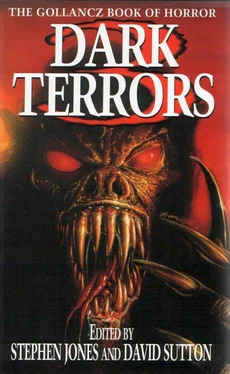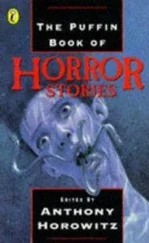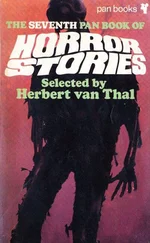Cecelia took a breath and said, although she knew Aunt Maureen had no need of permission or encouragement, ‘I know only a handful of things about our family’s history. I’d like to know more.’
Later, at various times in her life when secrets from the past seemed especially vital or especially irrelevant to her, she would consider with a certain wonderment what she had thus invited in. Sometimes almost idly, occasionally with an urgency that was utterly impractical, she would wonder what difference it might have made in the lives of her children — particularly of Virginia, who would seem to have the most to gain and to lose — if she hadn’t invited Aunt Maureen to tell her this story, or if she’d pressed for more.
Aunt Maureen began by fixing things in place: ‘The year was 1916.’ For the same reason, Cecelia’s attention was momentarily occupied by the fact that she herself would be born the next year. Contemplating time before her birth or after her death always evoked in her a disquieting sense of continuity and insignificance, of being one small bead on an infinitely long and infinitely splitting string. She felt much the same way when she looked up at stars on a clear night, or lay flat in a mountain meadow, or on the one occasion when, on vacation with her parents in Maine, she’d walked along an ocean beach. It was somehow the same feeling, too, that made her back away from cliff rims — for fear not of falling but of jumping.
Aunt Maureen had gone on, oblivious to or, more likely, contemptuous of Cecelia’s momentary inattention. ‘Libby had another child. I was at the Normal, away from home for the first time, and no one had told me of her condition for fear of disturbing my studies, I suppose, or out of shame, or for some other reason. She and the baby came on the bus. I didn’t know she was coming. I understood right away what she wanted.’
For a moment or two, Cecelia puzzled as if over a riddle. Then she shook her head and asked, as she knew she was intended to do, ‘What did she want?’
‘Why,’ said Aunt Maureen, as if it were the most obvious thing in the world, ‘she thought I should just give up everything and raise her child. I was young. Your Uncle Everett and I were already engaged. Here she was, a middle-aged woman alone with a grown child, and not well. She never came right out and asked, and I never came right out and refused, but we both understood what was going on between us. For ever after, it was between us.’
The wind had picked up. The navy blue sweater was obviously providing as much warmtb as it was going to, and Aunt Maureen’s hands were hidden under her upper arms. Cecelia’s cheeks, stiff from the cold, were wet already from the wet wind, although rain wasn’t actually falling yet. The mass of clouds descending overhead like a lid didn’t yet cover the entire sky, and the gold light skimming in under their edges and through their gradually closing fissures glinted like ore in granite.
‘So then what happened to the baby?’ All sorts of possibilities flashed through her mind, among them that in this world was a cousin utterly unknown to her and that there was an infant’s grave among the others in this hillside plot somewhere.
But Aunt Maureen wasn’t ready yet to recount that part of the tale. ‘The father,’ she said deliberately, ‘was a business associate of our father’s, a man named William Bradley, a decent man I’d always thought, a good deal younger than Libby. As a matter of fact, at one time I’d considered setting my cap for him myself.’
Restraining herself from glancing sharply in her aunt’s direction to assess regret, Cecelia listened for it instead and heard none. ‘And he wouldn’t marry her,’ she supplied.
Aunt Maureen tsked. ‘My sister refused to marry him. William Bradley tried to do the honourable thing by her, and Libby sent him packing. But then, she wasn’t well.’
The funeral now appeared to have reached what, presumably, was the edge of the Harkness family plot, although boundaries were blurred and Cecelia was still confused about the position of the procession relative to herself and Aunt Maureen. The figures were not only undersized and shadowless but also translucent; the gold light glimmered through them, and the grey light, and the suggestion of objects which, when the figures moved, were revealed as not there.
With a shock it came to Cecelia that somehow she’d been regarding this as a re-enactment of Aunt Libby’s funeral, and that, because of the motorized vehicles, it could not be. Apparently some aspect of her mind especially suggestible to this ethereal time and place, had readily accepted that a funeral from twenty-three years ago should reappear to her, and only a detail which in fact was irrelevant had made her decide otherwise. That she’d so readily made so ghostly an association gave her gooseflesh, and she found herself pulling her jacket snugly around her in the manner of the Harkness women and tucking her icy hands under her arms.
The hearse and the other black car stopped. Hearing no cessation of engine noise, Cecelia realized she had not been hearing engines in the first place, nor any other sound from the funeral. Silently, small figures disembarked from the two vehicles, and, together with the straggling pedestrians, formed a little graveside crowd. Six in particularly black coats and black hats lifted a casket from the back of the hearse. The wood of it caught thin sunlight and briefly glowed; fleetingly, metal glinted like the edges of the sky.
The two individuals who had split off from the rest, one pink-and one black-clad, were some distance away now, though it was hard to tell just where they were in relation to anything else. They danced, floated. Cecelia didn’t know whether to watch them or the group at the grave, where the casket — dull and self-contained, catching no light now — was being lowered. She didn’t know whether she could watch either without losing track of what Aunt Maureen was telling her. Recurring throughout the rest of her life, then, would be the conviction that on that late-autumn afternoon, in a part of the country which otherwise would prove to have no special significance for her, she might have missed something important.
Doubtless because Cecelia had not asked, Aunt Maureen informed her rather testily, ‘Libby had always been moody and high-strung. Within a few months after the birth of her second daughter, she had a fully-fledged breakdown.’
At the time, Cecelia thought she had no memory of this, which would have made sense considering her young age when it happened. But later, telling some of the story to Ray who didn’t seem especially interested, two clear images came to her that she suspected might be attached to that time and place: Laughter, song, wails echoing, travelling from room to room she couldn’t see; and a sign she gradually grew able to read after it had been read to her numerous times: black letters painted unevenly on a cut board, nailed to a door jamb well above her head, then not so high: STOP. DO NOT GO PAST HERE.
Again she asked Aunt Maureen, a bit breathlessly by this time, ‘What happened to the baby?’
‘Libby gave her to Helen,’ Aunt Maureen replied without hesitation. ‘Helen raised her as her own.’
For a split second, Cecelia thought she was being told she had a cousin/sister about whom she hadn’t known, and she felt as much eagerness as trepidation. But then the events of the story abruptly lined themselves up for her, and she stared at her aunt. ‘Aunt Libby was my mother?’
‘Libby gave you birth,’ Aunt Maureen said firmly. ‘Helen was your mother.’
Chills sped through her, and she pulled her jacket snug. ‘My father was William Bradley?’
‘Your father is Emil Parmalee.’ Aunt Maureen reached out from under her taut dark sweater, and her hand came startlingly around Cecelia’s exposed wrist. ‘This doesn’t change anything, Cecelia. I just thought you had a right to know.’
Читать дальше












